A democracy not just promised, but earned

For years, we, the youth of Bangladesh, lived under the shadow of a government that systematically dismantled every pillar of democracy. Our voices were muffled, our rights denied, and our votes stolen. We saw two national elections rigged before our eyes, and for many of us, casting a ballot was nothing more than a distant fantasy. As children, we learned about democracy in textbooks; as adults, we found that democracy existed only as a facade.
In 2019, many of us reached the age of voting, only to find that the election was a sham. Ballots were cast the night before, opposition candidates were systematically silenced, and the regime brazenly paraded its victory as though it had been earned. Five years later, it happened again. The overwhelming sense of powerlessness that comes with knowing that the future of your country is being decided without your say cannot be easily put into words. Every young person in Bangladesh carries the weight of that disenfranchisement. We are a generation who has never truly cast a vote—not in the way democracy promises.
For years, one family dominated our political landscape, turning our nation into their personal playground, manipulating laws and rigging elections to cling to power. They brought us to the brink of political collapse, but their grip has been broken. Now, we must ensure that never again will any family, group, or individual be able to control the fate of our nation. Our expectations for the democracy we are about to build are high. We demand a system where every vote counts and every voice matters. But beyond the mechanics of elections, we are calling for a political ecosystem where governance is transparent, power is decentralised, and no family, no matter how deeply entrenched, monopolises control of our country's destiny. Our right to vote is not just symbolic; it is the very foundation of our future.
We did not fight just to trade one autocrat for another; we fought for a system that reflects the values of justice, freedom, and equality. To achieve this, we must hold ourselves and our new leaders accountable. For too long, our country has been plagued by a political culture of revenge, where power is wielded not for the good of the people, but as a weapon to punish opponents and enrich allies. This cycle must end if we are to create a democratic nation.
Our democracy must be one in which no voice is too small to be heard, where laws are not just tools of the powerful, and where the institutions of government are free from political interference. The separation of powers is a critical pillar of democracy that we have yet to experience. Under the previous regime, the lines between the executive, legislative, and judicial branches were blurred, leaving no room for checks and balances. Those in power could not be held accountable because the very institutions that were meant to restrain them had been co-opted. We need to make sure that no leader, no matter how charismatic or well-intentioned, should be above the law.
Freedom of speech and assembly is also non-negotiable. Our revolution was driven by the power of collective voices, but for years, dissent was met with violence, censorship, and intimidation. The new Bangladesh we are building must be one where citizens can speak freely, where criticism is not only tolerated but welcomed as part of a healthy political dialogue. We must create a culture where dissent is not seen as a threat, but as a vital component of democracy.
As we chart the path forward, decentralisation must also be a priority. One of the most harmful legacies of the regime we toppled was the concentration of power in the hands of a few. Decisions that impacted millions were made by a group with little regard for the people. We must push for decentralised governance, where local governments are empowered to make decisions that reflect the needs of their communities, to ensure that democracy reaches every corner of our country.
The road ahead will not be easy. Revolutions are rarely clean, and ours was no different. We overthrew a regime, but we are yet to rebuild a country. The transition from resistance to governance is fraught with challenges, but we are determined to meet them. The youth of Bangladesh did not take to the streets for revenge or short-term gains; we fought to reform the very fabric of this nation. We must remember that the July uprising was not without sacrifice. We saw friends fall beside us, their lives stolen by a regime desperate to cling to power. Their deaths are a reminder that our struggle is far from over. We owe it to them, and to every Bangladeshi who dared to dream of a better future, to see this through. Anything less than actual democracy is a betrayal of their memory.
In this new era, we have a chance to redefine what it means to be Bangladeshi. We can finally build the democracy we have long been denied. The youth, long disenfranchised, now stands at the forefront of this movement. We are not just participants in this democracy; we are its architects. Today, democracy is not just a right but a responsibility. We fought for it, we bled for it, and now we must protect it. Our expectations are high because we know what is at stake. We cannot allow history to repeat itself. Our fight was not for a fleeting moment of freedom but for a system that honours the sacrifices of those who came before us. This is our democracy—one not just promised but earned. And we will accept nothing less.
Maisha Islam Monamee is a student of Institute of Business Administration (IBA) at the University of Dhaka and a contributor at The Daily Star.
Views expressed in this article are the author's own.
Follow The Daily Star Opinion on Facebook for the latest opinions, commentaries and analyses by experts and professionals. To contribute your article or letter to The Daily Star Opinion, see our guidelines for submission.

 For all latest news, follow The Daily Star's Google News channel.
For all latest news, follow The Daily Star's Google News channel. 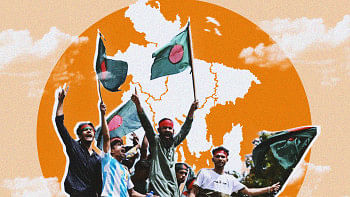




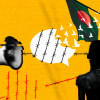
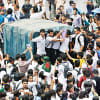
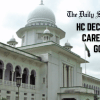

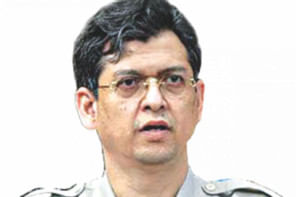
Comments